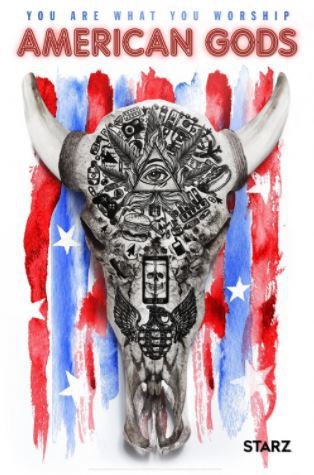 Once upon a time, in the summer before I graduated from college, I embarked upon an “Art Across America” cross-country road trip. I went with my mother, sharing driving, navigating, and DJ’ing responsibilities as we traveled up to Niagara Falls before making our way across Ontario to Michigan, Wisconsin, Minnesota, and points west. We stopped at the Dinosaur Gardens in Ossineke, we traveled down the Enchanted Highway outside of Gladstone, we stopped at every “World’s Largest” exhibit and Paul Bunyan statue that we could find. And of course—of course—we went to the House on the Rock.
Once upon a time, in the summer before I graduated from college, I embarked upon an “Art Across America” cross-country road trip. I went with my mother, sharing driving, navigating, and DJ’ing responsibilities as we traveled up to Niagara Falls before making our way across Ontario to Michigan, Wisconsin, Minnesota, and points west. We stopped at the Dinosaur Gardens in Ossineke, we traveled down the Enchanted Highway outside of Gladstone, we stopped at every “World’s Largest” exhibit and Paul Bunyan statue that we could find. And of course—of course—we went to the House on the Rock.
Fans of Neil Gaiman’s American Gods will be familiar with the House on the Rock. (Fans of the television show will no doubt come to be acquainted with it.) And for those fans, our reasons for including it on the tour will probably seem obvious. It’s a prominent location in a beloved book. Obviously we had to see it.
What struck me most when I visited was the appropriateness of the place to Gaiman’s novel. As we wandered through the expansive tourist attraction, becoming ever more disconcerted and overwhelmed by the sheer quantity of stuff on display (antiques and faux antiques, dollhouses and dolls, replica weapons, calliope machines, Burma-Shave adverts, and carousel figures… so many carousel figures), it dawned on me that we were standing in the single most American place in all of America. A deathless shrine to consumption, and excess, and the flat refusal to understand when too much is enough.
Of course the gods of Gaiman’s novel, being American gods, went to the House on the Rock. Where else would an American god go?
Watching “The Bone Orchard,” the first episode of Bryan Fuller and Michael Green’s Starz adaptation, I felt the same sense of rightness, vis-à-vis tone and theme, that I felt standing in the House on the Rock. There’s simply no way around it, Fuller and Green’s American Gods has perfectly nailed the heart, soul, and concomitant aesthetic of the book.
A good friend of mine summed it up well, noting that the tone of the show is somewhat tawdry. But while she isn’t yet convinced of the appropriateness of that tone, I am 100% sold.
Tawdry: showy but cheap; gaudy; low, or mean, or base.
That’s pretty much the point, yes? That’s the whole thing.
In a story that is, fundamentally, about the heart and soul of America, you’re going to have to strike the odd tawdry note here and there. Because the heart and soul of America is fundamentally tawdry.
The American Gods series incorporates a number of things that I consider mainstays of the Bryan Fuller aesthetic (or of his Hannibal aesthetic at the very least). Elegiac violence. Artistic gore. Sexual text and subtext galore. An almost overpowering collage of glittery, glossy trash. But while those attributes didn’t always work for me in Hannibal—most notably in the first season where I felt they overwhelmed a text sometimes lacking in substance—here they seem perfectly in sync with the very substance of the text itself. The gods of America are arrogant, self-centered, and self-serving (they have to be). They are junkies, and grifters, and thieves. And at the head of the table, sitting in the big-boy chair, making the big-boy decisions, is an aging con-man in a ridiculous hat.
 God bless Orlando Jones.
God bless Orlando Jones.
And what, pray tell, is more American than that?
We, as a nation, are tawdry. We are showy, and gaudy, and cheap. We care only for our own desires, our own goals, our own fixes. That’s who we are. That’s our national motto.
America first, last, and always.
A show about America is going to exhibit those characteristics, and indeed, must—of necessity—revel in them. Because America is nothing if not bigger, better, faster, more.
And I’m sure that somewhere in there lies a supremely profound story about a human spirit that can withstand even the most toxic manifestation of the American dream. There certainly was one in the book. But that story of the human spirit is, and perhaps always will be, in opposition to the myth of America, to the myth of American exceptionalism, to the myth of American individualism. And we’ve got a lot of adversity to claw our way through before we’re going to see success.
This is not a story that glorifies America. This is a story about the brutality, the profligacy, the depravity of a nation. American Gods is about usurpation, and about the usurpation of usurpers—arguably white America’s greatest modern-day fear. It’s about winning by any means necessary. It’s about the cost of doing business. It’s about the essential moral and ethical bankruptcy of living that way. And it’s about the moral and ethical bankruptcy of a system that demands such sacrifices to survive. It’s meant to have a gloss of cheapness to it.
Without that gloss, it wouldn’t be a story about America.
And let me tell you, I am all in on Fuller and co. having the guts to completely fucking go there. American Gods episode one was beautiful and brilliant and base. And I can’t wait to see where it goes from here.
Advertisements Share this:




